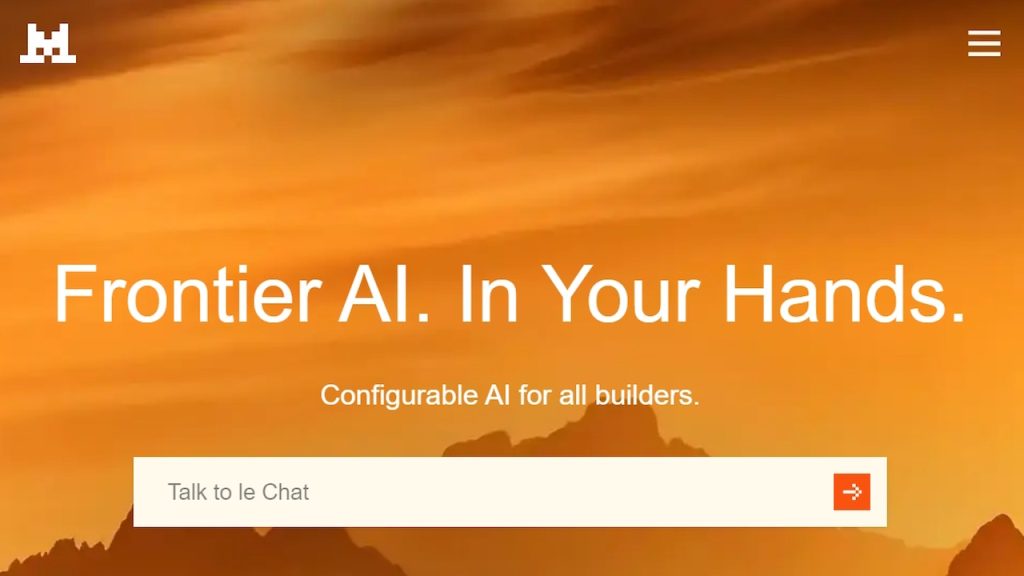Paris-based Mistral AI launched Devstral, a new 24-billion parameter artificial intelligence model tailored for software engineering tasks. The “research preview,” developed in collaboration with All Hands AI, is notably available under an open-source Apache 2.0 license, permitting unrestricted commercial application.
Mistral positions Devstral as a significant step towards “agentic” coding (AI taking a more active role in development), where AI can manage complex, real-world software development challenges beyond simple code snippets. For developers and businesses, Devstral’s introduction signals a potentially powerful and cost-effective AI assistant capable of running on local hardware, a key differentiator in an increasingly competitive AI tooling market.
The company detailed the launch on the Mistral AI official blog. Mistral asserts that Devstral excels at using tools to explore codebases, edit multiple files, and power software engineering agents, running over code agent scaffolds such as OpenHands or SWE-Agent to resolve actual GitHub issues.
Mistral states that Devstral achieves a score of 46.8% on SWE-Bench Verified, outperforming prior open-source state-of-the-art models by more than six percentage points. The company further claims it surpasses some larger closed-source models like OpenAI’s GPT-4.1-mini on this benchmark.
A key feature is Devstral’s efficiency; Mistral states the model can run on a single Nvidia RTX 4090 or a Mac with 32GB RAM, making local deployment feasible.
This launch marks Mistral’s third product announcement in May, following Mistral Medium 3 and Le Chat Enterprise, underscoring a strategy to offer a diverse portfolio of AI models. “Devstral is not just about code completion; it’s about understanding the entire software development lifecycle,” Mistral AI explained to VentureBeat. The company also confirmed it is working on a larger agentic coding model slated for release in the coming weeks.
Agentic Capabilities and Developer Access
Devstral aims to move beyond basic coding assistance by understanding code within large existing projects, identifying relationships between different software components, and detecting subtle bugs in complex functions.
This “agentic” approach means the AI takes a more active role in the development process. A spokesperson for All Hands AI told VentureBeat they “believe Devstral will empower developers to tackle more complex coding challenges with greater efficiency,”
Developers can access Devstral via Mistral’s API, where it is listed as `devstral-small-2505`. The pricing is set at $0.1 per million input tokens and $0.3 per million output tokens. For those preferring local deployment, the model is available for download from several platforms, including Hugging Face, Ollama, and Kaggle.
This accessibility is a core part of Mistral’s strategy, previously seen with models like Mistral Small 3.1, focusing on efficient AI that doesn’t demand massive infrastructure.
Navigating the Competitive AI Coding Arena
Devstral arrives in a rapidly evolving and highly competitive market for AI-powered developer tools. Google, for instance, just used its I/O conference to launch Stitch, an AI tool for UI design, and to announce the public beta of Jules, its autonomous coding agent driven by the Gemini 2.5 Pro model. OpenAI also continues to enhance its Codex agent, now integrated into ChatGPT, which powers Microsoft’s GitHub Copilot that recently upgraded to OpenAI’s GPT-4.1 model as its default.
The field also includes specialized startups like Windsurf, which, despite a pending acquisition by OpenAI, recently debuted its own SWE-1 AI models aimed at the full software engineering lifecycle. Other notable entrants are Zencoder with its Zen Agents and Anysphere’s Cursor. The industry is clearly trending towards more autonomous, agentic AI. Google’s official blog stated about the current evolution in the AI coding space, “We’re at a turning point: agentic development is shifting from prototype to product and quickly becoming central to how software gets built.”
Broader Implications and Future Outlook
While the promise of AI significantly boosting coding productivity is high, with one Stack Overflow survey indicating 76% of developers used or planned to use AI tools last year, challenges remain. AI models generally still struggle with producing consistently high-quality software and can sometimes introduce security vulnerabilities or errors.
AI providers echo this caution themselves; OpenAI, for example, consistently reminds users that “It still remains essential for users to manually review and validate all agent-generated code before integration and execution.”
Furthermore, there are ongoing discussions within the developer community about the potential impact of these advanced tools on the fundamental skill development of new engineers. As Mistral AI continues to develop Devstral, currently in “research preview,” and its upcoming larger coding model, the interplay between AI capabilities, developer workflows, and the need for human oversight will be critical in shaping the future of software creation.

